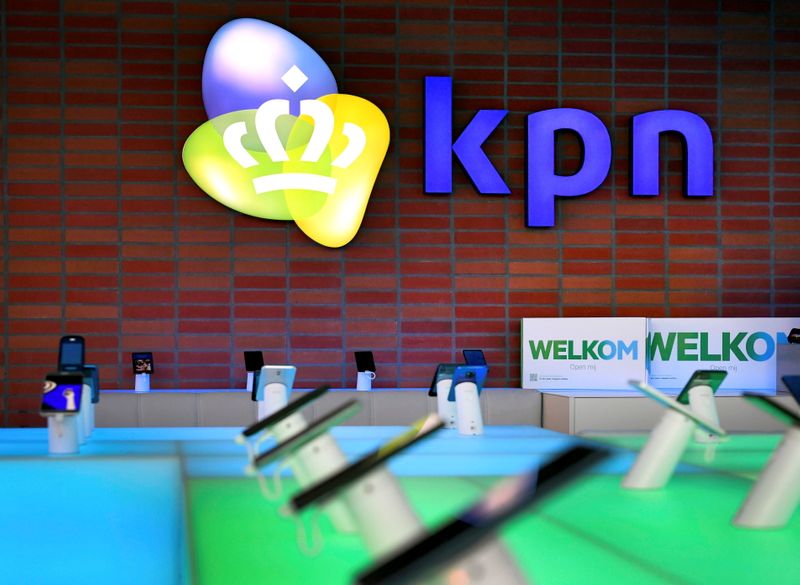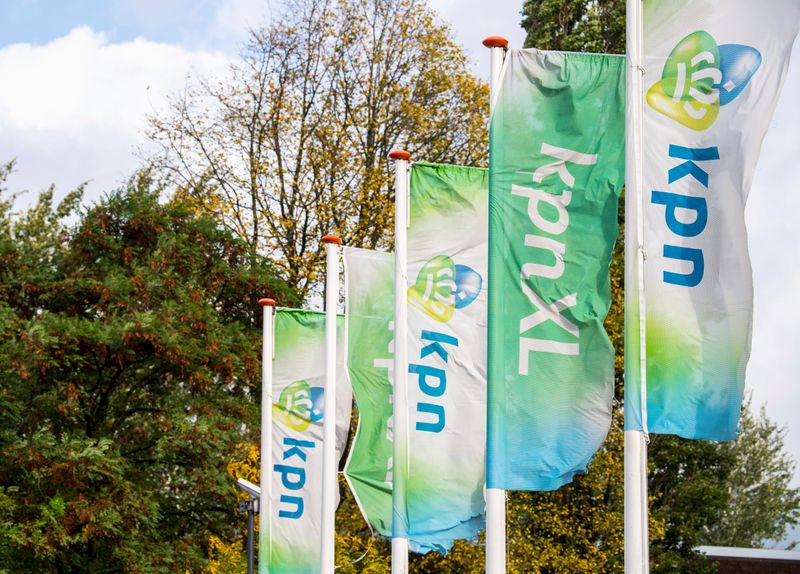AMSTERDAM (Reuters) – Sweden’s EQT is still interested in buying Dutch telecom KPN, two sources familiar with the matter said on Monday, even as shares in the company slid after it rejected the private equity firm’s takeover proposal.
KPN said on Sunday the proposal by EQT AB and another by KKR of the United States, which it has also rejected, lacked merit. Separately the Dutch government repeated it has the power to block unwanted takeovers of telecommunications companies.
KPN shares were around 3% lower at 2.78 euros by 1355 GMT, valuing the Netherlands’ largest telecommunications company at 12 billion euros.
Speculation about private equity interest in KPN has driven its share price about 45% higher since early October.
The people familiar with the matter said EQT still believes KPN might be willing to entertain a plan that would enable it to invest more heavily in infrastructure.
EQT would not have demanded dividends, which KPN pays to its shareholders every year, and would have been willing to spend 4 billion euros on network investments, they said.
But KPN, which is already investing 3.5 billion euros to build its fibre optic networks over the coming three years, said in its statement that EQT’s proposals would not provide “tangible and material added value”.
It said its boards had considered the interest of not only shareholders but also “customers, employees, creditors and bondholders, suppliers, business partners, government and Dutch society at large.”
EQT declined to comment.
The Dutch government said on Monday it was aware of the offers for KPN, which competes with VodafoneZiggo and T-Mobile in the Dutch market, but would not comment on individual companies.
However it added it was satisfied with current investment plans by the country’s telecoms operators.
“The Netherlands is not for nothing at the top of lists in international comparisons of digital infrastructure and we’d like to keep it that way,” the Economic Affairs Ministry said in a statement.
NOT FOR SALE
KPN Chief Executive Joost Farwerck on Friday said he was not looking to sell the company, pointing out that it is well-funded and investing heavily in infrastructure for the first time in 26 years.
He cited both KPN’s own plans and its joint venture with pension fund giant ABP launched in March to rollout fibre to rural areas.
KKR reached a 700 million euro fibre deal with T-Mobile Netherlands in March, meaning its plans for KPN may be obsolete, a senior telecoms banking industry source said.
KKR declined to comment.
Farwerck said it would be difficult for KPN to further accelerate the rollout given limitations on the number of streets it could work in at one time and the availability of labour and equipment.
EQT owns the Netherlands’ second-largest fibre optic network, DeltaFiber, and had hoped to combine it with KPN’s, a source close to the matter previously told Reuters.
But KPN’s publication of the EQT and KKR approaches showed it wants “to quell takeover rumours, (and has) no intention to be sold”, ING analyst David Vagman wrote in a note.
America Movil, which tried to buy KPN in 2013 but failed on the company’s poison pill defences, retains a 20% stake, which it describes as “financial” and not strategic.
($1 = 0.8300 euros)
(Reporting by Bart Meijer, Toby Sterling and Arno Schuetze; Editing by David Goodman, Kirsten Donovan)























